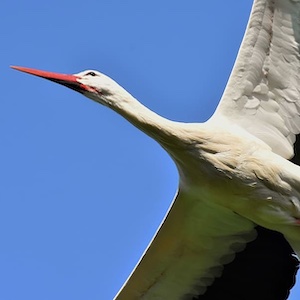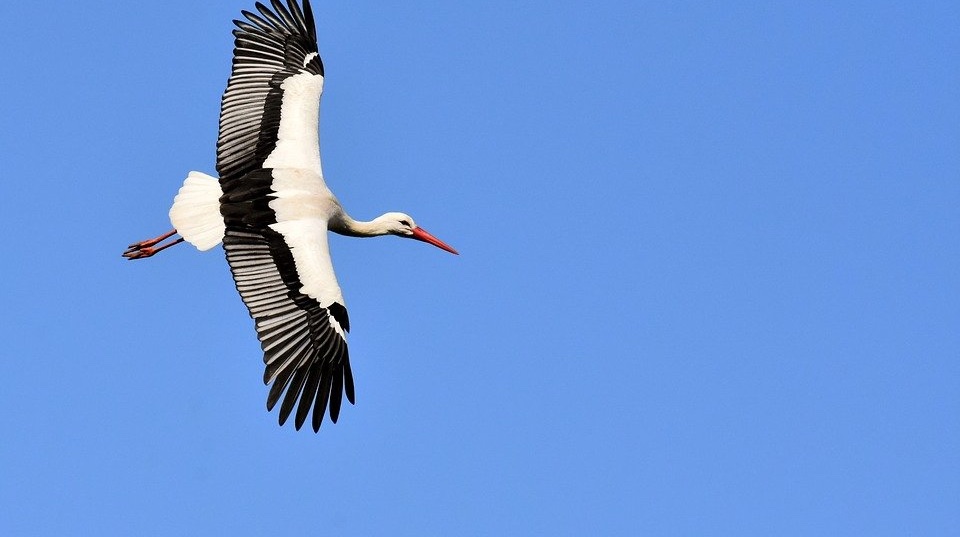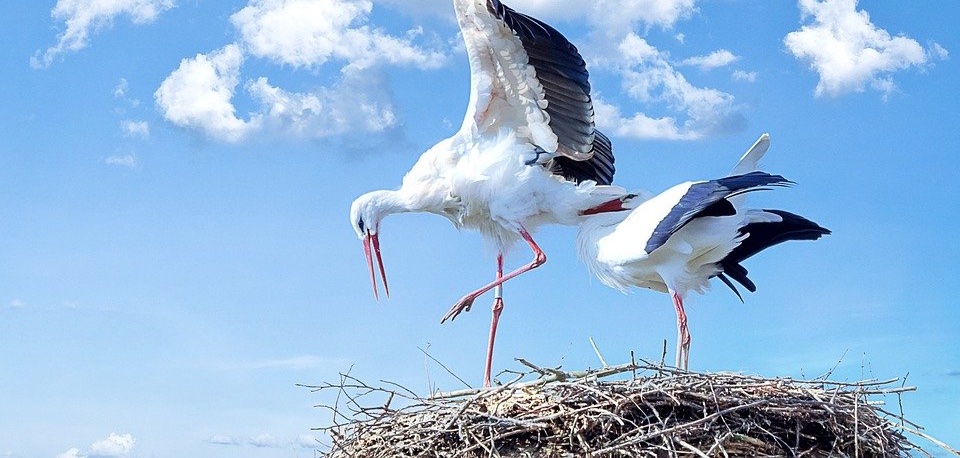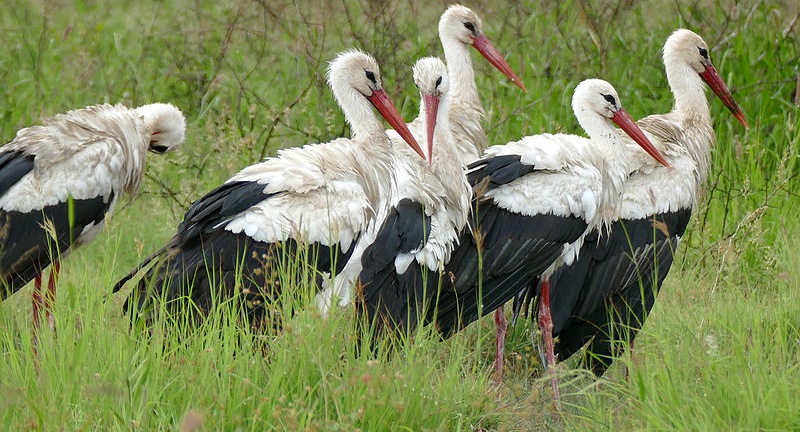Brenda and Tony Gibbs Award
 Funding cutting-edge ornithology
Funding cutting-edge ornithology
Award of £20,000
The Brenda and Tony Gibbs Award is funded by a legacy left to the BOU to specifically fund ‘research on tracking and migration studies including the use of new technologies’.
This award is therefore aimed at funding discovery science, technological advances, high-profile conservation and research with societal impact that delivers a step change in the understanding of the movements and migrations of birds. ‘New technologies’ in this context is specifically referring to tracking technology.
Impacts may be demonstrated through scientific papers, public engagement, technological advancement and/or gaining evidence to further the conservation of birds.
The award is not designed to top-up existing research programs on movement and migration (e.g. to fund a few more trackers for an existing tracking study), rather to provide an avenue to explore novel questions, and implement new tracking technologies that may result in data that can be used to support larger research funding.
We have funded the following projects from this fund:
Investigating carry-over effects of plastic pollution on post-fledging movement and survival of a pelagic seabird, Flesh-footed Shearwater Ardenna carneipes
Dr Jennifer Lavers | Institute for Marine and Antarctic Studies (IMAS), University of Tasmania, Australia
View
Natal dispersal in a riverine bird: using next-generation tracking to transform our understanding of juvenile movements
Dr Stuart Sharp | Lancaster Environment Centre, Lancaster University, UK
View
Impacts of Artificial Light at Night (ALAN) on two nocturnal birds – a natural experiment triggered by the collapse of power supply in South Africa
Associate Professor Arjun Amar | FitzPatrick Institute of African Ornithology, South Africa
View
Pesticide effects on the migration and survival of Eurasian Skylarks Alauda arvensis
Dr Wieland Heim | Department of Biology and Environmental Sciences, University of Oldenburg, Germany
View
Impact of rapid habitat transformation on the resource selection and habitat use in a critically endangered species endemic to the northern Andes in Colombia
Dr Juan Pablo Gómez | Universidad del Norte, Colombia
View
Tracking the emergence of foraging culture in a newly forming seabird colony
Dr Stephanie Harris | University of Liverpool, UK
View
2025 applications
Use the application form provided (see below).
Applications are only accepted via email to office@bou.org.uk
The BOU will acknowledge (by email) receipt of your application. All correspondence will be undertaken by email. Applicants will be informed of the outcome of their application by 30 September 2025 and awards are paid to successful applicants two months ahead of the project commencing.
Download full guidelines and application form
The deadline for applications is 15 May 2025.
Who can apply
- All BOU members, as well as non-members residing and working in low or middle income countries are eligible to apply.
- Principal Investigators can submit one application per year and must be employed by an academic institution, independent research organisation or non-governmental organisation.
- Although students are not eligible to apply, their main supervisor may apply on behalf of their project.
- We welcome applications from anyone fulfilling the above requirements who research the movements and migrations of birds.
All applications are also expected to fulfil the following requirements:
- Funds are for covering the costs of tracking devices, necessary permits/licences, travel and subsistence for fieldwork and the salaries of local field assistants.
- For those planning to work outside of their home country or community, they must include the name and contact information of at least one local collaborator as a project team member.
- Although we do not require ethical permissions to be in place at the time of application, there is an expectation that they will be sought and we will require them to be in place before releasing the funds for the project.
- The applicant must be competent to undertake the research and demonstrate that all proposed fieldworkers have appropriate skills in applying tag/devices to birds.
- Funds would need to be spent within 24 months of the award being made.
- The project must be feasible in terms of resources and time allocated.
- The project must have a clearly defined and justified budget.
- The research must be of high scientific quality.
- The research must be interesting, innovative or a potentially high impact piece of work.
- The project must be a stand-alone research project, where the amount being sought is a substantial percentage of the total project budget.
What we do not fund:
- Applications from non-BOU members (see exemptions in ‘who can apply’ above).
- Applications from organisations or directly from students.
- Applications that propose to add an extra year’s data for longer-term studies.
- Baseline studies or the setting-up of long-term monitoring schemes.
- Conservation implementation, education, outreach or awareness raising.
- Salaries (other than salaries of local field assistants), student stipends and course fees (see item 4 on the full guidelines).
- Overhead costs.
- Attendance at conferences or meetings.
- Publication costs.
- Projects already started by the commencement date of the proposed project.
Size of award
A single award of £20,000 will be awarded annually from 2021 to 2025.
Further, we encourage applicants and their students to check the BOU Small Grants Scheme where smaller-scale tracking/migration projects up to a maximum of £2,000 will be considered under funding from the Brenda and Tony Gibbs legacy.
Species
Research can be undertaken on the movements and migrations of any bird species. As part of your application, you are required to provide details of the key species your project aims to study.
Project costs/budgets
As part of the application you are required to submit a credible budget, which details the total project costs, the amount requested from the BOU, any funds already obtained, any other funds applied for or where additional funding will be obtained. Please clarify how any short-fall between the total budget costs and the amount already obtained plus that requested from BOU will be met.
Please be as transparent as possible, cost your project, and the items for which funding is being sought from the BOU, as carefully as possible.
Total project costs must include all the costs of running the entire project (excluding the salary or stipend of the applicant) and not just the total for the items for which funding is being sought from the BOU. Where the cost of equipment is being sought from the BOU please provide an itemised breakdown (and for other budget headers as necessary). The BOU needs to be able to accurately assess the size of any contribution it may wish to make to a project. Some past applications have been jeopardised by a lack of transparency and accurate costing of the project.
BOU Mission Statement
Applicants should note the BOU’s objectives and mission statement.
The British Ornithologists’ Union will promote ornithological science across the international scientific community, support the individuals who contribute to that science, and grow understanding of that science among a wider community.
The BOU’s mission will be achieved by the following objectives:
- To maintain the publication of the IBIS as a leading international journal of ornithological science.
- To organise and/or hold an active programme of meetings and conferences.
- To make available grants for ornithological research.
- To facilitate liaison between those actively engaged in ornithological research.
- To provide, as a representative of the scientific community, ornithological information and advice to government and other policy makers.
- To maintain and publish the official list of British birds (The British List).
BOU Ethical policy
You should note the BOU’s ethical policy (dated March 2012). Whilst primarily aimed at publication in the BOU’s journal, IBIS, it is equally applicable to research funded by the BOU.
IBIS is published on behalf of BOU by Wiley-Blackwell and we support Wiley-Blackwell in their policy on ethical issues in relation to scientific publications (see http://authorservices.wiley.com). Authors should make themselves familiar with this policy. In particular the BOU requires that all authors disclose any potential sources of conflict of interest. Any interest or relationship, financial or otherwise, that might be perceived as influencing an author’s objectivity is considered a potential source of conflict of interest. These must be disclosed when directly relevant or indirectly related to the work that the authors describe in their manuscript. Potential sources of conflict of interest include but are not limited to patent or stock ownership, membership of a company board of directors, membership of an advisory board or committee for a company, and consultancy for or receipt of fees from a company. The existence of a conflict of interest does not necessarily preclude publication in this journal.
It is the responsibility of the corresponding author to review this policy with all authors and to collectively list in the covering letter to the Editor, in the manuscript (under the Acknowledgment section), and in the online submission system ALL pertinent commercial and other relationships. As part of the submission process, corresponding authors will be asked to confirm whether or not a conflict of interest exists.
The BOU is a member of and subscribes to the principles of the Committee on Publication Ethics (COPE).
The BOU expects all authors of papers submitted to IBIS to act within the standards and procedures laid down by UK national or equivalent legislation in the country where the work is conducted. They must ensure they have the necessary licences and permits for the activities described in the paper. Where work is carried out in places lacking legislation or where this is not adequately administered, the work should conform to the ethical standards expected in the UK.
The BOU expects authors to have proper regard for conservation considerations and best practice in work with wild or captive animals. Attention is drawn to the ‘Guidelines for the Use of Animals in Research’ published regularly in the journal Animal Behaviour (Animal Behaviour2006, 21: 245-253) and the specific guidance provided by ASAB/ABS for submissions to Animal Behaviour. In particular authors should consider the potential impacts of disturbance, trapping, and manipulations such as marking or tagging on their study animals and provide details in the paper on how these aspects have been dealt with. Papers will not be accepted if they are based on work involving cruelty to animals or if the work may have put at risk endangered populations, species or habitats.
The BOU is not opposed in principle to the ‘taking’ of specimens from the wild for scientific purposes but would expect that only in exceptional circumstances is such an approach adopted. Authors are referred to the guidelines on collecting of specimens from the wild proposed by Collar (Bird Conservation International 2000, 10: 1-15).
Grants, bursaries, studentships and other funding from the BOU
The ethical approach required for the submission of papers to IBIS will also apply to proposals submitted for BOU grants or bursaries. The application should include details of any potential conflicts of interest and the procedures adopted to minimise any negative impacts on the study animals.
Your application should indicate that the work conforms to this policy.
In particular, please make clear whether your work will include the collection of specimens (for which copies of any appropriate licenses will be required prior to commencement of any collection).
Timing of applications
Applications are for awards made in September 2025 for projects which begin within six months of the award being offered and entirely or largely completed within two years of the project commencing. ‘Entirely or largely completed’ is defined as having all field observations complete and analyses progressed to a stage where main results can be written up in report form for the BOU. It is understood that it may take longer for any manuscripts resulting from the work to be submitted for publication.
The deadline for applications is 15 May 2025.
Applicants will be informed of the outcome of their application by 30 September 2025 and awards are paid to successful applicants two months ahead of the project commencing.
Submitting your application
Use the application form provided (see below).
Applications are only accepted via email to office@bou.org.uk
The BOU will acknowledge (by email) receipt of your application. All correspondence will be undertaken by email.
Download full guidelines and application form
Images
White Stork Ciconia ciconia | Map CC BY SA 2.5 Wikimedia Commons; in flight CC0 PD pixabay.com birds on nest CC0 PD pixabay.com; group in wetland CC BY SA 2.0 Wikimedia Commons; close up in flight CC0 PD piqsels.com





